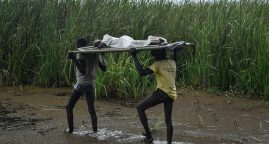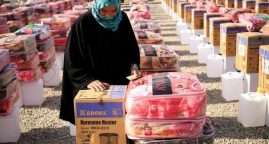Countries in crisis: rethinking the role of development aid
On the occasion of the 3rd National Conference Humanitarian which had met on 23 February in Paris, Anne Paugam, CEO of the French Development Agency, invites us to consider development aid as an investment.
The strategy and procedures of multilateral and bilateral organizations must be revised accordingly.
The reality is there: the crisis of land multiply and transform themselves. The effects of climate change, the Ebola epidemic, recurrent security tensions in the Sahel or Central and Syrian dramas show: the crisis can no longer be considered an exception.
Nearly 2.6 billion people were affected by natural disasters over the past decade and more than 1.5 billion people live in countries affected by violent conflict.
“The costs of the crisis are exorbitant, beyond the human tragedy, the associated economic costs natural disasters of the decade 2005-2015 are estimated at 1300 billion, while the home of people displaced by crises in host regions generates increasing pressure on public services, the environment or local social fabric.”
Given this situation, multilateral and bilateral organizations adapt their strategy and acquire important means of fast action and prevention …
Read the full article (in french) on “La Croix” website
Related Articles
Local aid agencies: still waiting for a bigger share of the funding cake
03/27/2017. Donors and UN agencies who agreed to provide at least one quarter of humanitarian aid funding “as directly as possible” to local NGOs are struggling to deliver on their pledge.
How small business can play a big role in humanitarian crises
01/13/2017. Unfortunately, the international community is increasingly unable to finance these growing needs
“Together, emergency and development NGOs”
02/02/2015. Check out this video (in french) in wich Mike Penrose, CEO of Action against Hunger and Yvonnick HUET, CEO Agrisud International raise the issue between humanitarian relief and access to more sustainable development.






